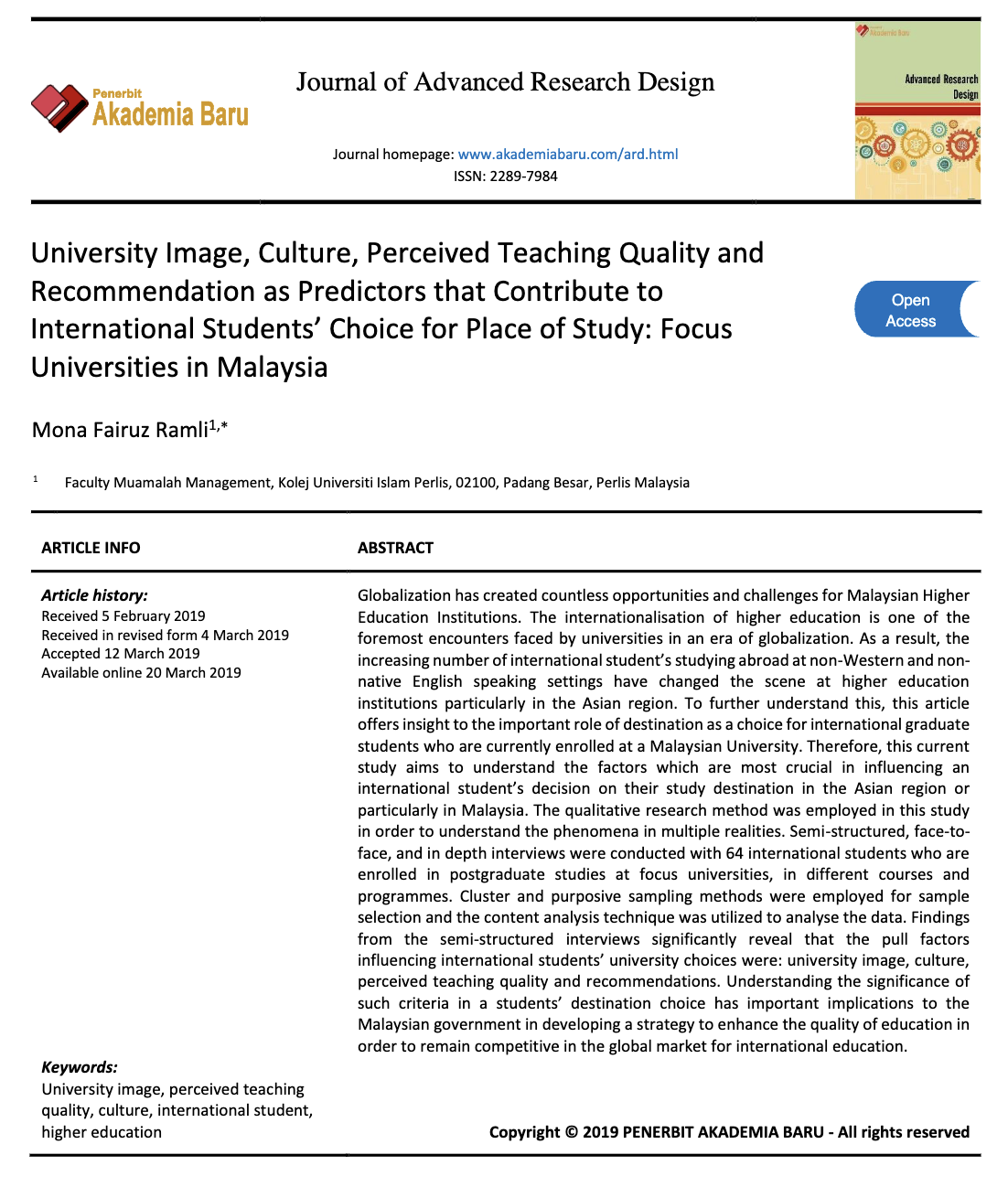University Image, Culture, Perceived Teaching Quality and Recommendation as Predictors that Contribute to International Students’ Choice for Place of Study: Focus Universities in Malaysia
Keywords:
University image, perceived teaching quality, culture, international student, higher educationAbstract
Globalization has created countless opportunities and challenges for Malaysian Higher Education Institutions. The internationalisation of higher education is one of the foremost encounters faced by universities in an era of globalization. As a result, the increasing number of international student’s studying abroad at non-Western and nonnative English speaking settings have changed the scene at higher education institutions particularly in the Asian region. To further understand this, this article offers insight to the important role of destination as a choice for international graduate students who are currently enrolled at a Malaysian University. Therefore, this current study aims to understand the factors which are most crucial in influencing an international student’s decision on their study destination in the Asian region or particularly in Malaysia. The qualitative research method was employed in this study in order to understand the phenomena in multiple realities. Semi-structured, face-toface, and in depth interviews were conducted with 64 international students who are enrolled in postgraduate studies at focus universities, in different courses and programmes. Cluster and purposive sampling methods were employed for sample
selection and the content analysis technique was utilized to analyse the data. Findings from the semi-structured interviews significantly reveal that the pull factors influencing international students’ university choices were: university image, culture, perceived teaching quality and recommendations. Understanding the significance of such criteria in a students’ destination choice has important implications to the Malaysian government in developing a strategy to enhance the quality of education in order to remain competitive in the global market for international education.
Downloads



















